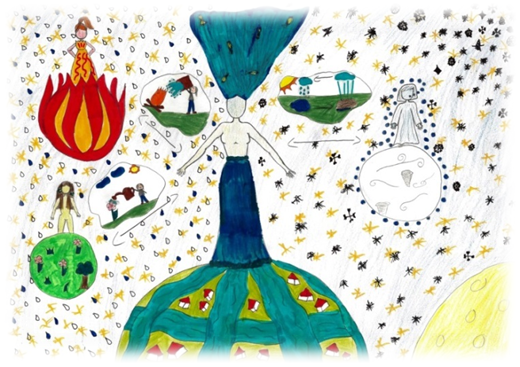
The European Commission’s Joint Research Centre (JRC), the Union for the Mediterranean (UfM) and the Global Water Partnership for the Mediterranean (GWP-Med) have joined forces to address the complex nexus between the water, energy, food and ecosystem sectors in the Mediterranean region.
Following the objectives set out in the UfM Water Declaration, and under the umbrella of the UfM Task Force, the three organisations are currently preparing a joint “Water-Energy-Food-Ecosystem Nexus”publication in the form of a Nexus Atlas.
This Atlas will provide a spatial baseline analysis and projection of the interconnected water, energy and food requirements in the Mediterranean region, and their associated impacts on the environment. It will address trade-offs and synergies between sectors, and show how, through clever use, they can help promote stability and socio-economic development in the Mediterranean area.
The Atlas aims to offer both a scientific and cultural perspective on the Nexus issues addressed, and will be presented in a language that is accessible to a broad audience, ranging from the interested citizen to specialised stakeholders and experts.
In order to grasp the current status of the region, the baseline analysis will be complemented by a collection of best practices in assessments of the Water-Energy-Food-Ecosystem (WEFE) Nexus. These will include examples of success stories that illustrate optimal Nexus solutions.
The Atlas will include examples that highlight the benefits of integrating a nexus way of thinking from economic, societal and environmental perspectives, and cover a range of activities, from large-scale projects to local examples, for instance at the farm level. Based on hands-on experience, these examples will show and explain the benefits that multiple water-using sectors can gain from the joint planning of water allocation and use compared to simply planning by sector.
Through its scientific and cultural approach to the Nexus issues addressed, the Atlas will also demonstrate that the most important challenge that the region faces, i.e. the lack of water, can become a source of dialogue and peace rather than one of conflict and confrontation.
People in the Mediterranean region have long been managing a scarce water resource, and performing wonders to ensure that all users get the necessary share of water to enable specific sectors to function.
With this Atlas, we hope to make this Nexus experience useful to others in the region, while building on the cultural heritage of the Mediterraean. The case studies will serve as a basis on which to build the narratives of the various development scenarios that will be illustrated in the Atlas.
We therefore call on interested parties to suggest useful examples by completing the ‘Water-Energy-Food-Ecosystem Nexus – Best practice example’ form below and sending it to: JRC-UFM-GWPMed-ATLAS@ec.europa.eu.
Case studies must refer to existing initiatives and activities, not to ones that are planned or have just started. The suggested case studies will be carefully assessed, analysed and discussed by JRC scientists, and the most representative case studies will be selected for inclusion in the Atlas.
Upon selection of suitable candidates, there will be further exchanges of information and documentation in cooperation with the JRC, UfM and the GWP-Med.
The call for proposals is open until 31 December 2018.
Please note that, by submitting case studies for consideration, participants give their consent to the organisers to store the information submitted, in order to be able to respond to queries about the exercise. Consent is also given to the organisers to use, publish and reproduce material submitted as well as photographs/images taken during workshops and conferences organised in the context of this exercise.
Further information
2021 © Europe for Business (EFB) All Rights Reserved. | Powered By Webpristine Technology